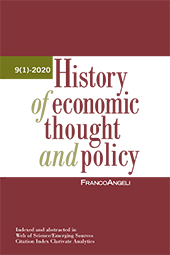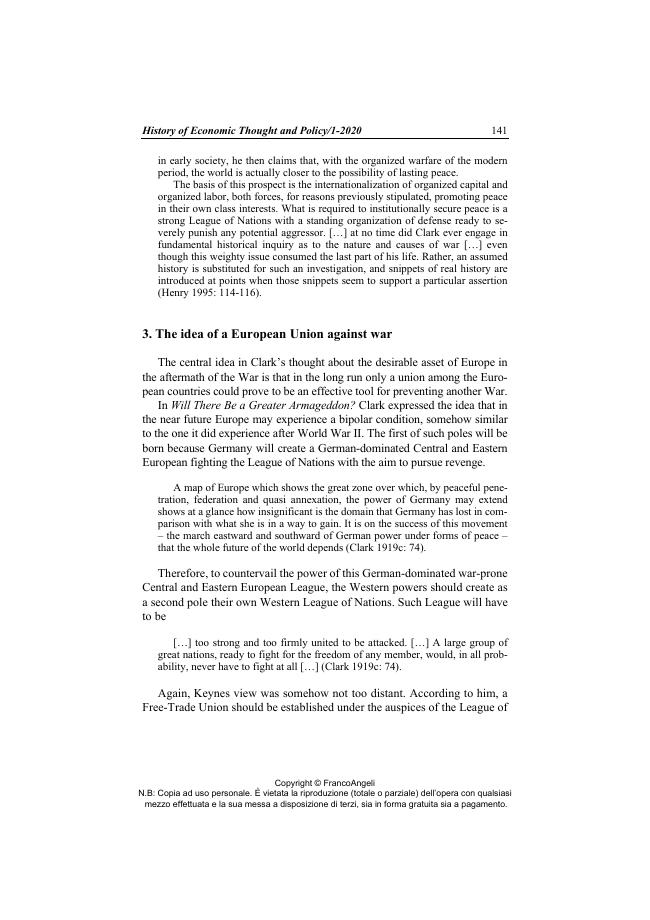John Bates Clark's view on the Treaty of Versailles as the origin of both World War II and the idea of a European Union
131-150 p.
The aim of this paper is to highlight the position of John Bates Clark about the Treaty of Versailles and the U.S. approach to Foreign Policy in the aftermath of World War I. To achieve this goal, we analyze some unpublished manuscripts from the Rare Book & Manuscript Library of Columbia University and four published articles written by Clark between 1918 and 1919 about the consequences of the Treaty and, more generally, the future of Europe. The main ideas emerging from this material are that Clark supported the Treaty because he thought that given the threat of a resurgent Germany, only a League of Nations including the U.S. could be able to maintain world peace. On the other hand, he also criticized it because he shared with Keynes the view that the very harsh provisions imposed on Germany would generate another World War in the near future. Finally, Clark saw the union among European countries as a tool for preventing another war. [Publisher's text].
Forma parte de
History of Economic Thought and Policy : 1, 2020-
Artículos del mismo número (disponibles individualmente)
-
Información
Código DOI: 10.3280/SPE2020-001006
ISSN: 2280-188X
KEYWORDS
- John Bates Clark, Treaty of Versailles, World War I.



